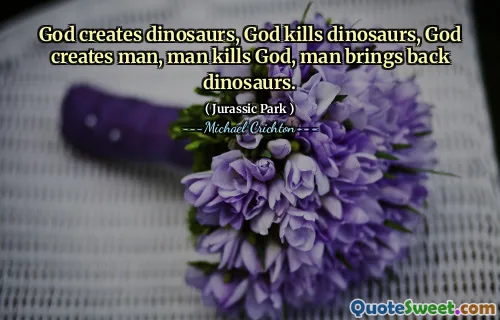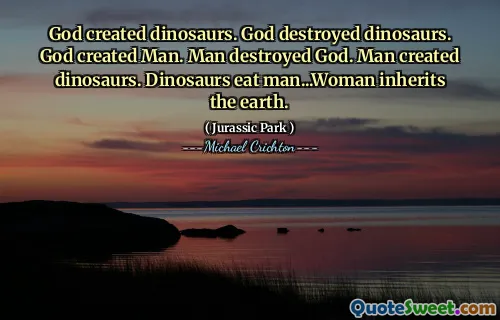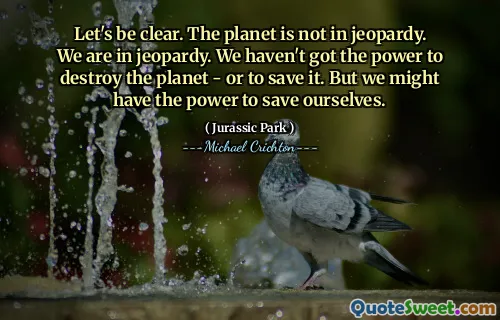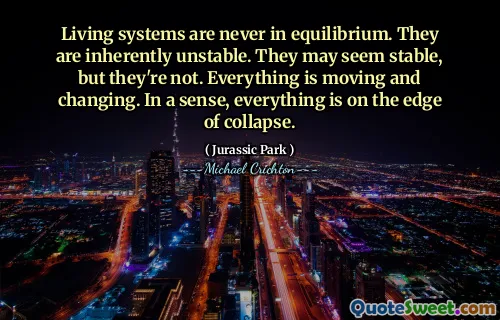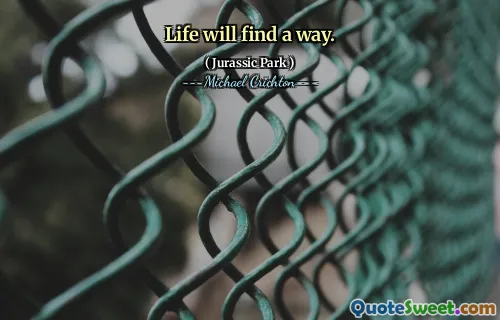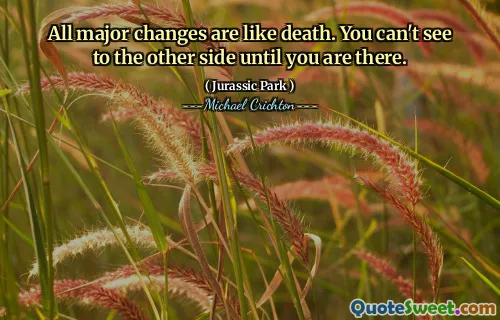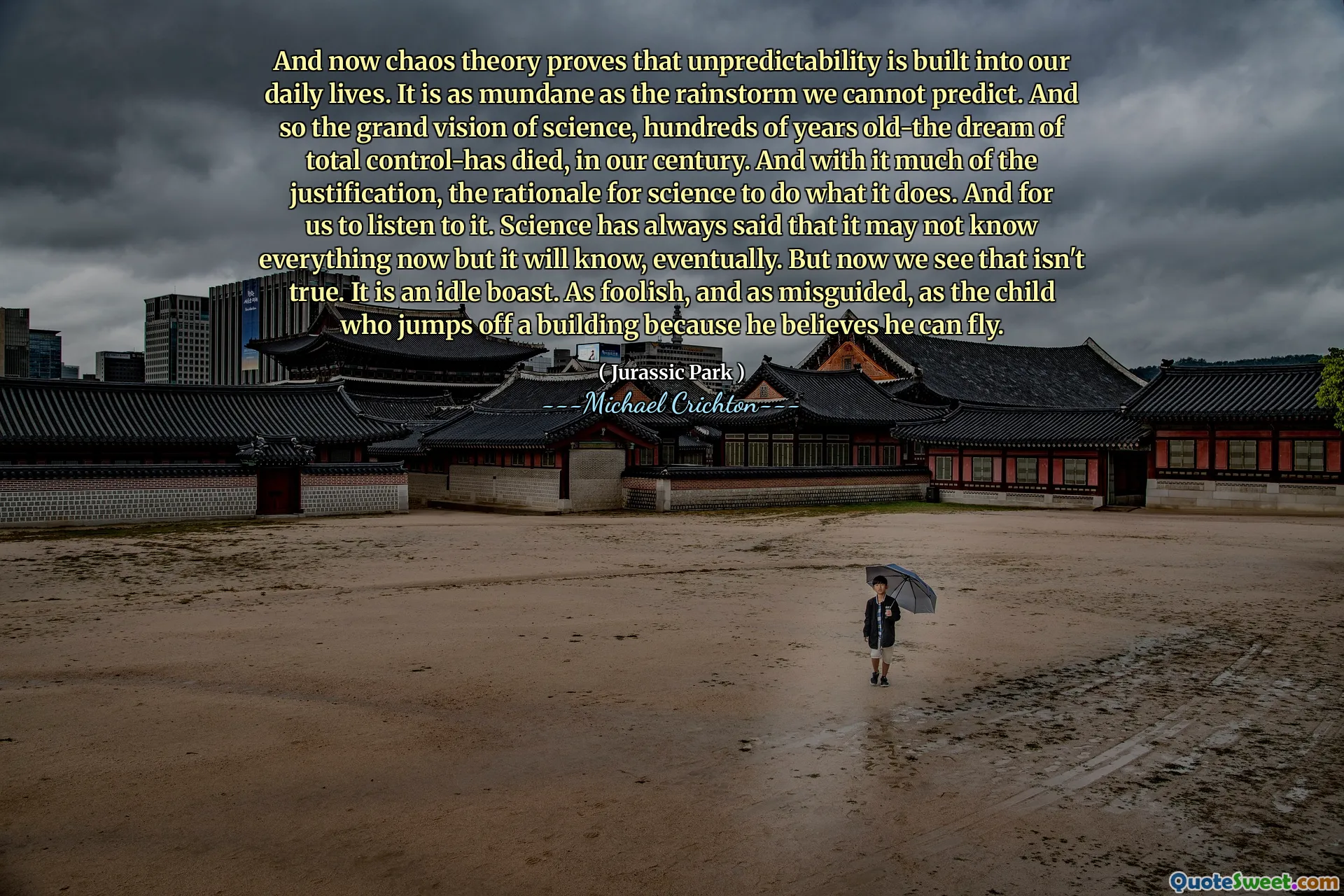
And now chaos theory proves that unpredictability is built into our daily lives. It is as mundane as the rainstorm we cannot predict. And so the grand vision of science, hundreds of years old-the dream of total control-has died, in our century. And with it much of the justification, the rationale for science to do what it does. And for us to listen to it. Science has always said that it may not know everything now but it will know, eventually. But now we see that isn't true. It is an idle boast. As foolish, and as misguided, as the child who jumps off a building because he believes he can fly.
Chaos theory highlights the inherent unpredictability in our lives, exemplified by events as commonplace as sudden rainstorms. This realization signifies the decline of the long-held scientific ideal of achieving total control over nature, a pursuit that has guided scientific endeavor for centuries. As our understanding deepens, we are learning that certainty is not as attainable as once believed.
Science has traditionally assured us that while it may not have all the answers now, it will eventually uncover them. However, this notion has proven to be overconfident, akin to the naive belief of a child thinking they can fly by jumping from a height. This shift in perspective calls into question the justification for science's authority and its ability to predict or control the complexities of the world.
